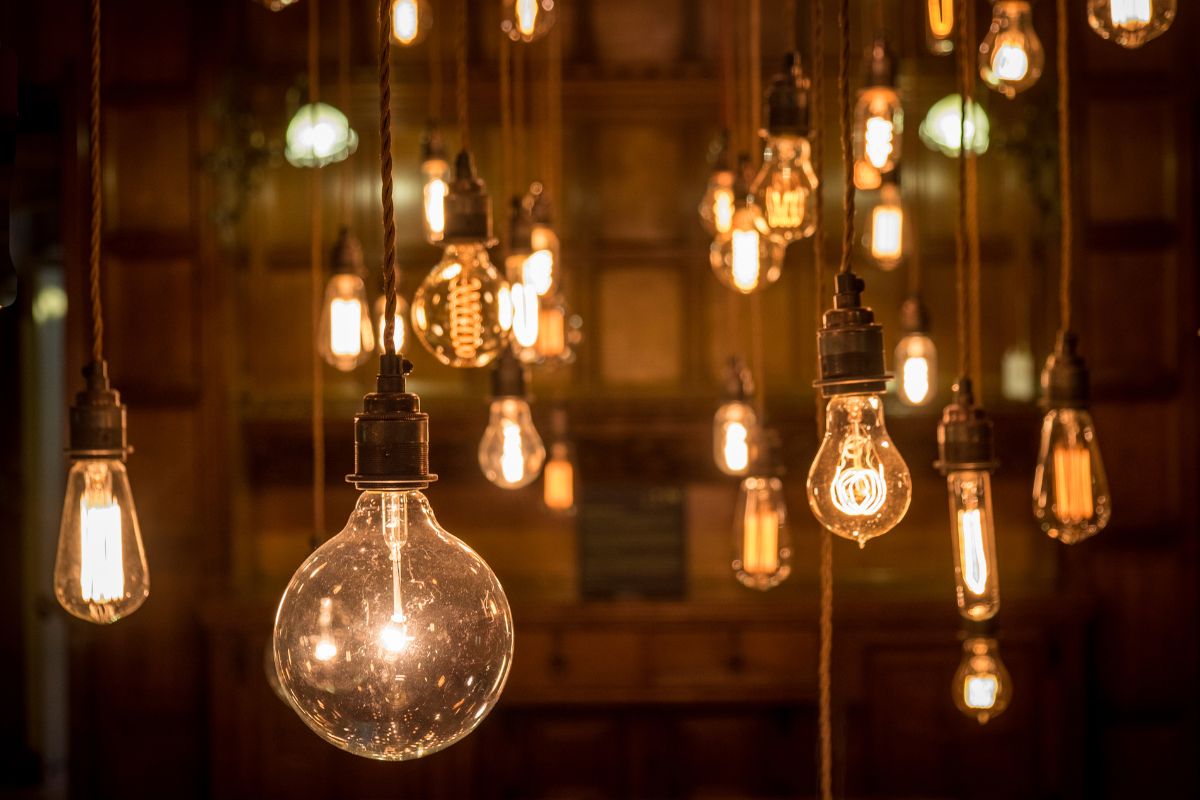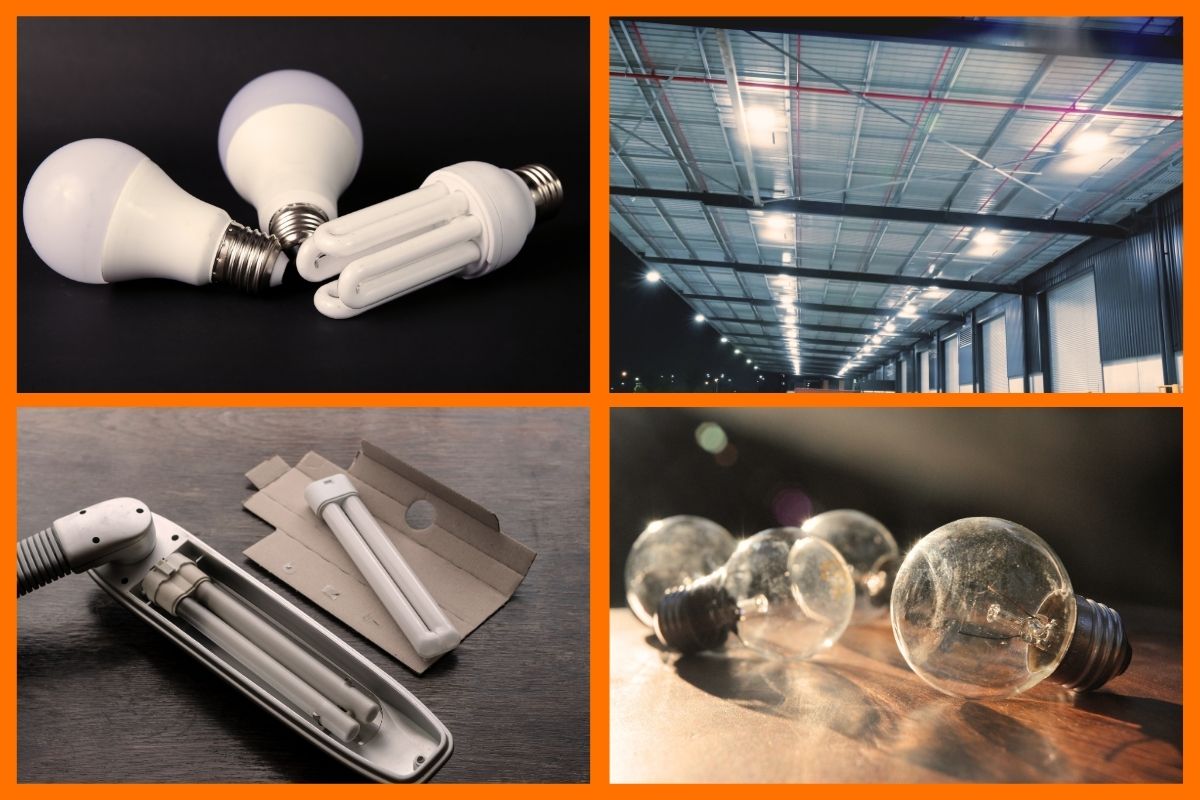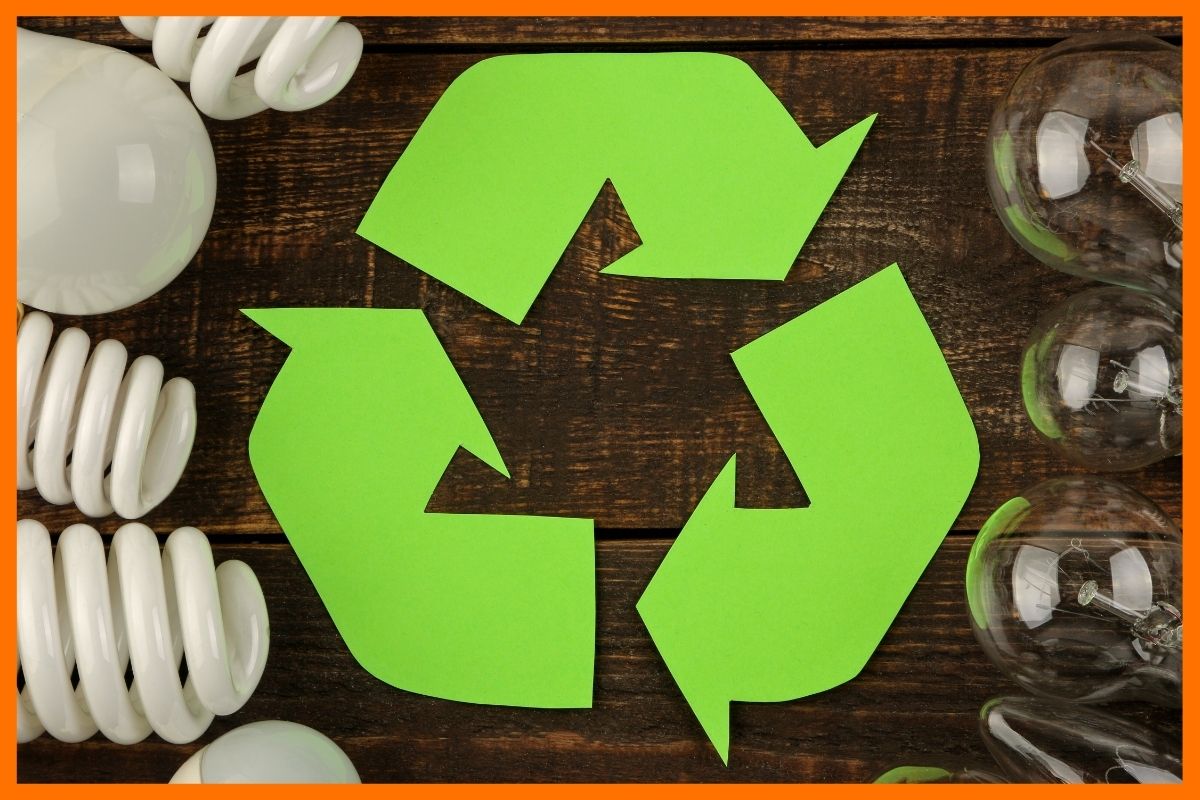
Lighting is an essential component of commercial buildings, but what happens when bulbs reach the end of their life? Improper disposal can lead to environmental damage, health risks, and non-compliance with UK waste regulations.
For facilities managers, landlords, and commercial property owners, proper light bulb disposal is about more than just compliance. It is an opportunity to reduce waste, improve sustainability, and enhance operational efficiency while ensuring adherence to WEEE (Waste Electrical and Electronic Equipment) regulations.
Certain light bulbs cannot be disposed of with general waste due to the hazardous materials they contain. The WEEE Directive outlines the correct procedures for managing electronic waste, including fluorescent tubes, compact fluorescent lamps (CFLs), and LEDs.
This guide explains how to dispose of light bulbs safely, comply with UK regulations, and implement sustainable waste management strategies in commercial buildings.
The WEEE Directive is a UK and EU regulation aimed at reducing the environmental impact of electronic waste. It places responsibility on producers to finance the collection, treatment, and recycling of electrical items, including certain types of light bulbs.
The WEEE Directive outlines responsibilities for the safe disposal of electrical and electronic waste, including light bulbs. Facilities managers can find official guidance on compliance from the UK Government’s WEEE Regulations and the Environment Agency.
For building managers, this means that many retailers accept used light bulbs for free disposal. To determine if a bulb falls under WEEE regulations, look for the crossed-out wheelie bin symbol on the product packaging. This indicates that it must not be disposed of with general waste.
Failing to dispose of light bulbs correctly can lead to:
Environmental Impact: Fluorescent bulbs contain mercury, which can leach into soil and waterways if not properly handled. LEDs, while mercury-free, contain valuable metals and electronic components that should be recycled.
Health Hazards: Broken CFLs release mercury vapour, which can pose a risk to maintenance staff and building occupants. Safe handling and disposal help prevent exposure.
Legal and Financial Risks: UK waste regulations require businesses to manage electrical waste responsibly. Non-compliance can result in financial penalties and reputational damage.

Different light bulbs require specific disposal methods to ensure compliance and sustainability.
These traditional bulbs do not contain hazardous materials and can usually be disposed of with general waste. However, recycling is recommended. Some local councils and retailers offer take-back schemes.
These contain mercury and are classified as hazardous waste. They must be recycled through designated collection points or specialist waste services.
If a CFL bulb breaks:
Open windows and ventilate the room for at least 15 minutes.
Carefully collect the fragments using gloves and place them in a sealed container.
LEDs do not contain mercury but have recyclable components, such as semiconductors and metals. They should be taken to a WEEE-compliant recycling centre or participating retailer.
Conduct audits to identify opportunities for improving waste management and ensure compliance.
Assess whether your building’s current waste management strategy aligns with sustainability targets.
Many retailers accept used bulbs for recycling under WEEE regulations.
Checking for local schemes simplifies disposal.
Promote responsible waste management as part of your building’s sustainability strategy.
Implementing best practices can improve tenant satisfaction and contribute to green building certifications.
At Karsons Consulting, we provide expert guidance on sustainable building management and compliance. Our projects include:
Howick Place: A project focused on optimising maintenance management and energy conservation.
1 James Street: Consultancy services for regulatory compliance and energy performance.
Watchmaker Court: Addressing energy efficiency and ventilation system improvements.
Camomile Court: A comprehensive approach to environmental assessments and sustainability.
For more on how Karsons Consulting supports compliance and sustainability, see our Environmental Engineering Services.
Proper light bulb disposal is essential for sustainable building operations. By following UK regulations, implementing best practices, and prioritising recycling, facilities managers and property owners can reduce waste, improve sustainability, and ensure compliance.
If you need guidance on WEEE compliance, waste management, or sustainable building strategies, Karsons Consulting is here to help.
📩 Contact us to discuss your waste management needs.

No, CFLs, fluorescent tubes, and LEDs must be recycled.
Many local councils, recycling centres, and retailers accept them under WEEE regulations.
No, but they should be recycled due to their valuable electronic components.
Ventilate the room, wear gloves, and clean up fragments without vacuuming.
Yes, businesses must manage electrical waste responsibly. Health and Safety Executive (HSE) on hazardous waste handling: https://www.hse.gov.uk/waste/index.htm.
Fines, legal action, and reputational damage. UK Government: Fines for waste non-compliance https://www.gov.uk/guidance/environmental-permits.
Switching to LEDs and implementing a structured recycling policy can help.
Yes, we provide tailored guidance on WEEE compliance and sustainability.
Contact us to receive a custom waste management checklist.
Get in touch with our team for expert advice on sustainable waste management.
Karsons Consulting are members of the Chartered Institute of Building Services Engineers, The Association of Consultancy and Engineering, British Institute of Facilities Managers and the Building Services Research and Information Association.